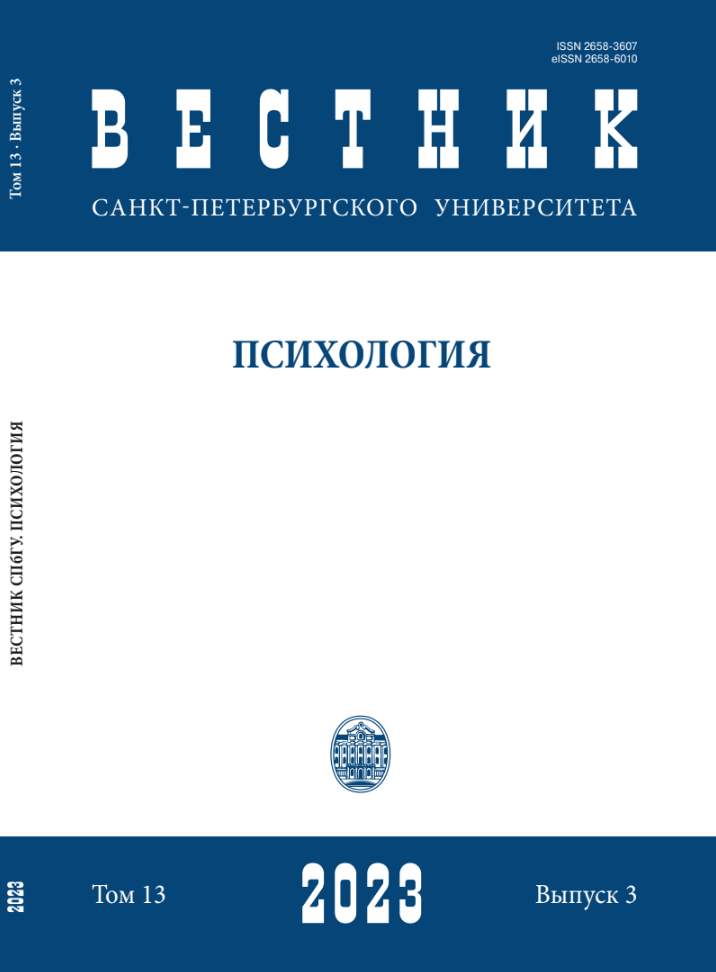Psychological stability of the personality in the light of the psychology of values: The dialectic of constancy and variability
DOI:
https://doi.org/10.21638/spbu16.2023.301Abstract
THe issues of value transformations today come to the fore in educational practices and psychological research, includes different levels of cognition, forms a common problem field in the social sciences and the humanities, where a person’s value priorities are considered as prerequisites for his behavioral strategies, subjective preferences and political choices. However, the problem of relationship between values and psychological stability of a person in a transitive society remains insufficiently studied. THe purpose of the article is to discuss the psychological stability of a person in the context of the psychology of values. It has been established that reliance on values in a situation of sociocultural changes, awareness and self-reflexivity are prerequisites for the psychological stability of a person, which, depending on different research angles, can be interpreted in two ways: on the one hand, as self-determination, an internal locus of control, adherence to independently chosen life guidelines, on the other hand, adaptability, flexibility, readiness to situationally respond to changes and rebuild behavioral strategies. In this regard, the dialectic of constancy and variability becomes a methodological basis for interpreting the psychological stability of a person as a complex and antinomic process. Values connect subjective and objective, emotional and conceptual, existential and cognitive content, acting as a kind of bridge between the studies of personality and society, the methodology of psychology and social sciences. THe transdisciplinary approach is consistently used as a methodological strategy aimed at generalizing in a single conceptual framework the relationship between personality development, the evolution of society and culture, the dynamics of values changing in the course of sociocultural transformations. In this context of transdisciplinary discourse, a construct is introduced and substantiated — the axiological space of socialization. THe construct makes it possible to combine both directed influences on a person from the side of his social environment and educational institutions, as well as dispersed, diffuse, latent influences due to current changes in everyday life and the peculiarities of the modern way of life. It is assumed that in methodological terms, the axiological space of socialization contributes to the integration of research into the psychology of personality, the psychology of subject, the psychology of everyday life in the field of social sciences.
Keywords:
methodology, psychology of values, psychological stability of a person, subject, axiological space of socialization, transdisciplinary approach
Downloads
References
References
Downloads
Published
How to Cite
Issue
Section
License
Articles of "Vestnik of Saint Petersburg University. Psychology" are open access distributed under the terms of the License Agreement with Saint Petersburg State University, which permits to the authors unrestricted distribution and self-archiving free of charge.




